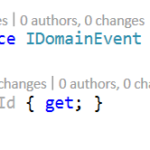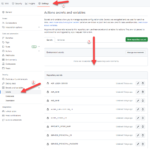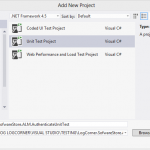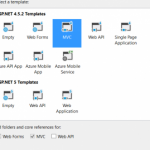Run Script in Azure Using Deployment Scripts and Bicep
Run Script in Azure Using Deployment Scripts and Bicep
1. Overview
Azure Deployment Scripts allow you to run PowerShell or Azure CLI scripts during a Bicep deployment. This is useful for tasks like configuring resources, retrieving values, or executing custom logic.
Learn more about Deployment Scripts in Bicep
The deployment script service requires both a storage account and a container instance.
Once the deployment script finishes executing, the storage account and container instance automatically clean up to ensure efficient resource management.
2. Minimum Permissions Required
To execute deployment scripts, the deployment service principal (or user) must have the necessary permissions.
Below is a custom role definition that grants the least privilege required.
Custom Role: Deployment Script Minimum Privilege for Deployment Principal
{
"roleName": "deployment-script-minimum-privilege-for-deployment-principal",
"description": "Configure least privilege for the deployment principal in deployment script",
"type": "customRole",
"IsCustom": true,
"permissions": [
{
"actions": [
"Microsoft.Storage/storageAccounts/*",
"Microsoft.ContainerInstance/containerGroups/*",
"Microsoft.Resources/deployments/*",
"Microsoft.Resources/deploymentScripts/*"
]
}
],
"assignableScopes": [
"[subscription().id]"
]
}
Description of Role Permissions
This custom role ensures that the deployment service principal (or user) has only the necessary permissions to manage resources required for deployment scripts.
- Storage Accounts (
Microsoft.Storage/storageAccounts/*) – Full control over storage accounts. - Container Groups (
Microsoft.ContainerInstance/containerGroups/*) – Enables complete management of container instances. - Resource Deployments (
Microsoft.Resources/deployments/*) – Allows full control over Azure resource deployments. - Deployment Scripts (
Microsoft.Resources/deploymentScripts/*) – Grants full access to deployment scripts in Azure.
This role is assignable at the subscription level, meaning it applies to all resources within the specified Azure subscription. The goal is to provide just enough access for script execution while ensuring security and operational control.
3. Use an Existing Storage Account
To run a deployment script and allow for troubleshooting, you need both a storage account and a container instance. You have two options:
- Use an existing storage account – Specify an existing storage account in the script configuration.
- Let the script service create both – If no storage account is specified, the deployment script service will automatically create both the storage account and the container instance.
4. Configure a Container Instance
A deployment script requires a new Azure Container Instance. You cannot use an existing container instance. However, you can customize the container group name using the containerGroupName parameter.
- If you specify a group name, it will be used as the container group name.
- If you don’t specify a name, Azure will automatically generate one.
This setup ensures that each deployment script runs in an isolated and controlled environment.
4. Inline Script Example in Bicep
1. Overview
This example demonstrates how to use an inline Azure PowerShell script within a Bicep deployment script. The script runs during deployment and outputs a simple message.
2. Bicep Code
param deploymentScriptName string = 'inlinePS'
param location string = resourceGroup().location
resource deploymentScript 'Microsoft.Resources/deploymentScripts@2023-08-01' = {
name: deploymentScriptName
location: location
kind: 'AzurePowerShell'
properties: {
azPowerShellVersion: '10.0'
scriptContent: '''
Write-Host 'Hello World'
$output = 'Hello world from inline script'
$DeploymentScriptOutputs = @{}
$DeploymentScriptOutputs['text'] = $output
'''
retentionInterval: 'PT1H'
}
}
output result string = deploymentScript.properties.outputs.text
Explanation of Each Component
1. Parameters
deploymentScriptName– Specifies the name of the deployment script (inlinePS).location– Uses the resource group’s location to deploy the script.
2. Deployment Script Resource
This defines a Microsoft.Resources/deploymentScripts resource that executes an Azure PowerShell script.
kind: 'AzurePowerShell'– Specifies that the script will run using Azure PowerShell.azPowerShellVersion: '10.0'– Sets the PowerShell version to 10.0.scriptContent– Contains the actual PowerShell script:Write-Host 'Hello World'– Prints"Hello World"to the console.- Creates a dictionary (
$DeploymentScriptOutputs) to store output values. - Stores the text
"Hello world from inline script"as an output.
3. Retention Interval
retentionInterval: 'PT1H'– Keeps the script execution logs for 1 hour before automatic cleanup.
4. Output Variable
The script outputs the text value, which is retrieved using:
output result string = deploymentScript.properties.outputs.text
Deploying an Inline Script Using Bicep
This example demonstrates how to deploy an inline Bicep script using Azure CLI and PowerShell. The script creates a resource group and deploys the Bicep template within it.
Deployment Commands
$templateFile = 'inline-script.bicep'
$resourceGroupName = 'RG-DEPLOYMENT-SCRIPT-GETTING-STARTED'
$deploymentName = 'deployment-$resourceGroupName'
# Create a resource group
az group create -l westus -n $resourceGroupName
# Deploy the Bicep template
New-AzResourceGroupDeployment -ResourceGroupName $resourceGroupName -TemplateFile $templateFile -DeploymentDebugLogLevel All
5. Monitoring
During the deployment of the deployment script, we can observe the following resources listed in the resource group:
A storage account
A container instance
The deployment script
Additionally, we can also view the deployment script logs.
source code
https://github.com/azurecorner/deployment-scripts-getting-started/blob/main/BLOG_INLINE_SCRIPT.md







